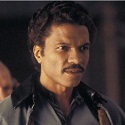|
Mightypeon posted:Could someone elaborate on that US "Up or out" principle? As far as I understand, US officers either get promoted or sacked. While I can see the appeal from a darwinian evolution pov, I see a number of big problems with this: I was enlisted, not an officer, so I'm not 100% sure on this stuff. But I think as far as 3 goes, they have "slots" that they fill. So it's a competition. Once the slots are filled, no one else gets promoted. I don't know how it is for officers, but I've seen people who stayed at E-4 specialist for a long time, especially when it comes to demotions. Not like they get kicked out for it. 2 is definitely a huge problem either way. You get guys who don't know poo poo about their job and can't lead men, but can recite the regulation that tells you how to wear your hat from memory.
|
|
|
|

|
| # ? Apr 19, 2024 11:22 |
|
Weltlich posted:3) I'll take this one first because I think it's important in context. I agree with you very much in this point, and I am, by no means advocating for a return to an Aristocratic officer corps. The officer corps moving to draw in more commissions of working class is not a bad thing in and of itself, and can be a very good thing. What I am advocating for is a mindfulness that our current military leadership tradition is based on an antiquated model that reflects a class dynamic that no longer exists. When a 2nd LT shows up to his first duty station, fresh out of ROTC, and he is given living quarters that are superior to a SSG with 7 years of service, there's an implicit message: you are superior - not because you've worked harder, not because you know more about your job, not even because your parents had wealth and power - you are simply just better. That's the root of what I want to see removed from the officer corps, not class, but the trappings of class that still exist just because they're "tradition." I can tell you've thought this over at length, but my question to you is, is there any example, with any military that's existed since 1940, of your plan actually working in real life? Saying the US military system of officer/enlisted is antiquated due to reason X, Y, or Z, is certainly a plausible argument, however, if every single military in the world for the last 75 years has operated in roughly the same way, and nobody has even tried an alternate method with a measure of success anywhere else, then it stands to reason that we have officers and enlisted for more practical reasons, not just so officers can attend fancy masquerades while the enlisted swine gets remanded to the slave quarters. Mightypeon posted:Could someone elaborate on that US "Up or out" principle? As far as I understand, US officers either get promoted or sacked. While I can see the appeal from a darwinian evolution pov, I see a number of big problems with this: What happens when you pack an NFL team full of veterans who have years of experience? Answer: half the loving team gets injured and you end with a losing season because nobody can stay healthy. An infantry company would be even worse than that because they suffer worse injuries, and aren't millionaires with a legion of medical support staff. Prior to WW2, career officers were able to stay in the military for years and years and years. There was no room to be promoted, so they would just languish at the same rank. The issue is that when an actual no-poo poo shooting war kicks off, your company ranks are filled with 35+ year old platoon leaders who have had the same job their whole life and are used to doing things the same way no matter what. For combat arms, experience is great, but having an army of comparatively old dudes isn't exactly optimal when it comes to the brutal physical requirements. Everyone has hosed up backs, hosed up knees, etc. So you end up with a poo poo ton of medical issues and guys breaking down in the field. In WW2, one of the most important statistics was replacement manning: units that were fully manned had the best chance to fight and survive. Units that went into battle at 50% or 75% strength were more likely to get beaten, badly. It also doesn't help when all of your leaders suffer from last-war-itis. A 15-year platoon leader that came of age in a conventional force-on-force warfare environment probably won't be the best to adapt to a counterinsurgency environment. You need fresh perspectives along with the experience.
|
|
|
|
Rekinom posted:I can tell you've thought this over at length, but my question to you is, is there any example, with any military that's existed since 1940, of your plan actually working in real life? I believe the Israelis promote officers from their NCO Corps, after being sent to officer school, Starship Troopers style.
|
|
|
|
I've always thought that one of the key differences between the American military now and how it was treated in the past is that during and before Vietnam there was an active pacifist movement in the United States. Religious pacifists in particular had been very public and outspoken voices about military excesses during WWI and the interwar period, and while they were often ignored they did provide a kind of radical alternative to hawks. Even if you don't think pacifism is a viable philosophy it's still a pity that they no longer exist to push the debate towards the center.
|
|
|
|
Jarmak posted:I believe the Israelis promote officers from their NCO Corps, after being sent to officer school, Starship Troopers style. Arent "Mustangs" still a thing in the USA too? Or did they got really rare recently?
|
|
|
|
Volkerball posted:Is this a joke post? 800,000 people got hacked to death with farm tools over 3 months, and no one did anything. There's no high ground whatsoever in what the US did. Within weeks of the genocide kicking off, there was one American left in the country, and he worked for a private charity and refused to leave! I'm sorry the RPF didn't take over the country fast enough for your liking. Rekinom posted:I can tell you've thought this over at length, but my question to you is, is there any example, with any military that's existed since 1940, of your plan actually working in real life? Military structures are extremely ossified institutions, and i've not seen a plausible argument for the total distinction between officers and enlisted in this way other than "that's how it's done". I've not seen any other institution managed this way, and I feel things like field commissions are a band-aid for it.
|
|
|
|
Strong officer-enlisted distinction is an aristocratic hangover, and it works better in some situations than others. I do think it puts a lot of pressure on the NCO's to be very good as they wind up having to act as connective tissue as well as all of the other poo poo they have on their plates. Strict separation does undermine the meritocratic nature of the service to a degree (though it also, maybe even principally now serves as an employment incentive for the officer corps). 'Joining the military? Jesus, that's desperate. At least he didn't join the bit for the unqualified poors!'
|
|
|
|
|
Panzeh posted:I'm sorry the RPF didn't take over the country fast enough for your liking. I'll give you two plausible arguments. Unlike any other institution, it is impossible to directly hire someone into a management role. You can't just bring in a colonel from off the street like how you hire a MBA into middle management. You have to grow them from the ground up. So, if you're building a senior leader from the ground up, they need to have had some sort of experience to draw from in their specialty. Thus, you put an LT in charge of a platoon, not because he's the best one to command it, but because we need company commanders with the proper resume to be successful. Extrapolate this to every echelon of command upward. Why can't an NCO just fill this role? Well he could, but managing upper leadership's guidance/directives while having to keep a close watch on the people is a pretty monumental task for just one person to do. It stands to reason that you let the NCO handle the people, because that's what he's closest and most familiar with, while you let the junior officer get his experience, but also be the upper leadership's conduit of control in the field. Thus, NCOs are "of the people" and officers are "soulless company men". A disconnected officer authority figure needs to be the one to give an order that prioritizes command guidance over concern of his guys. The NCOs that the troops trust (because he's one of them) has to be the one to set the example and fall in line so that the junior guys follow suit without question, thus they can't be seen as the originator of said order. The officer/NCO/enlisted model may have it's roots in aristocracy, but optimal battlefield organization is optimal battlefield organization, regardless of what seems right or fair. Just like how you always have a commander in charge with sole authority, instead of voting about what to do next.
|
|
|
|
Volkerball posted:You get guys who don't know poo poo about their job and can't lead men, but can recite the regulation that tells you how to wear your hat from memory. Every manager in any office job, especially if the company is a massive corporation.
|
|
|
|
Barlow posted:I've always thought that one of the key differences between the American military now and how it was treated in the past is that during and before Vietnam there was an active pacifist movement in the United States. Religious pacifists in particular had been very public and outspoken voices about military excesses during WWI and the interwar period, and while they were often ignored they did provide a kind of radical alternative to hawks. Even if you don't think pacifism is a viable philosophy it's still a pity that they no longer exist to push the debate towards the center. An active pacifist movement was much more pressing to have when you had a draft going. There's still assloads of pacifists these days, but all they have to do is not volunteer.
|
|
|
|
Mightypeon posted:Arent "Mustangs" still a thing in the USA too? Or did they got really rare recently? I've never heard of this edit: oh, yea lots of people go officer after being enlisted, but its viewed as starting over Jarmak fucked around with this message at 19:35 on Jan 2, 2015 |
|
|
|
I had a "green to gold" captain in charge of a company I was in once. He was by far the most human and competent officer I ever encountered. He was also a bit old for a captain and essentially stuck at O-3 because he was considered to be tarnished as an ex-NCO.Rekinom posted:I'll give you two plausible arguments. Unlike any other institution, it is impossible to directly hire someone into a management role. You can't just bring in a colonel from off the street like how you hire a MBA into middle management. You have to grow them from the ground up. So, if you're building a senior leader from the ground up, they need to have had some sort of experience to draw from in their specialty. Thus, you put an LT in charge of a platoon, not because he's the best one to command it, but because we need company commanders with the proper resume to be successful. Extrapolate this to every echelon of command upward.
|
|
|
Jarmak posted:I've never heard of this I just find that bizarre. For comparison - several people I know who did OTC at university in the UK with me were unsure if they wanted to join the army as officers, or go on to do something else. They joined the Territorial Army and deployed to Afghanistan as enlisted men. Some joined the army, others were happy to have done their small bit and went on their way. The people who did join the army eventually have, as a result, not lost out in career terms for not having deployed for a hot mission. One person I know has been injured for a while and unable to take up his first comission in the parachute regiment after military academy, but he is still not that far behind the people he did paratroop selection with because he has a tour of Afghan experience.
|
|
|
|
|
Chin posted:I had a "green to gold" captain in charge of a company I was in once. He was by far the most human and competent officer I ever encountered. He was also a bit old for a captain and essentially stuck at O-3 because he was considered to be tarnished as an ex-NCO. Yeah, it's a bizarre kind of thinking to believe that US Army has found the optimal structure considering how much army organization has changed over the past hundreds of years.
|
|
|
|
Chin posted:I had a "green to gold" captain in charge of a company I was in once. He was by far the most human and competent officer I ever encountered. He was also a bit old for a captain and essentially stuck at O-3 because he was considered to be tarnished as an ex-NCO. I'm a 12 year NCO going through ROTC right now. I get a lot of weird looks from the units I get assigned to and some poo poo from the Master Sergeant in charge of my program. Fortunately, I'm not going back to active duty and the National Guard is much more chill about that stuff.
|
|
|
|
Disinterested posted:I just find that bizarre. For comparison - several people I know who did OTC at university in the UK with me were unsure if they wanted to join the army as officers, or go on to do something else. They joined the Territorial Army and deployed to Afghanistan as enlisted men. Some joined the army, others were happy to have done their small bit and went on their way. I've run into a number of poo poo officers who ( in my opinion) went green to gold as a way forward when they couldn't get promoted. Also green to gold officers who couldn't get over not being NCOs and couldn't stop swinging their dick around and getting into nco business. Often these were the same people. Though I also had a green to gold PL who had something like 12 years in group and was just doing his time in big army till he made O3 and was eligible to go back. He was pretty awesome.
|
|
|
|
Rekinom posted:I'll give you two plausible arguments. Unlike any other institution, it is impossible to directly hire someone into a management role. You can't just bring in a colonel from off the street like how you hire a MBA into middle management. You have to grow them from the ground up. So, if you're building a senior leader from the ground up, they need to have had some sort of experience to draw from in their specialty. Thus, you put an LT in charge of a platoon, not because he's the best one to command it, but because we need company commanders with the proper resume to be successful. Extrapolate this to every echelon of command upward. That's a good just-so theory, but the reality is that you can't actually call something the optimal solution before you experiment with some alternatives.
|
|
|
|
The Oldest Man posted:That's a good just-so theory, but the reality is that you can't actually call something the optimal solution before you experiment with some alternatives. Unfortunately, we don't have our own personal armies, nor lives and money to throw away on experiments. So, like I said, if you find an example of someone experimenting with fundamentally different alternatives to the U.S. model with any measure of success, please feel free to share, because I can't find any.
|
|
|
|
Panzeh posted:I'm sorry the RPF didn't take over the country fast enough for your liking. None? You've seen zero explanations for separating commissioned and enlisted troops that exceed the scope of "because history"? That's...improbable. Improbable like counting on a field commission to ever come your way. Or expecting to see a field commission. Or ever meeting anybody who has seen a field commission.
|
|
|
|
Prostheticfoot posted:None? You've seen zero explanations for separating commissioned and enlisted troops that exceed the scope of "because history"? That's...improbable. Improbable like counting on a field commission to ever come your way. Or expecting to see a field commission. Or ever meeting anybody who has seen a field commission. I've seen about one in this thread which would imply a level of interest in the development of abilities that none of the services actually take and would not necessitate a strict distinction. The other one i've heard is discipline, but there are plenty of organizations that maintain can maintain rigid discipline without it. In fact, the pool of 'officer' level talent would dramatically increase if the barrier between enlisted and commissioned were eliminated.
|
|
|
|
Prostheticfoot posted:None? You've seen zero explanations for separating commissioned and enlisted troops that exceed the scope of "because history"? That's...improbable. Improbable like counting on a field commission to ever come your way. Or expecting to see a field commission. Or ever meeting anybody who has seen a field commission. Besides the fact this is some retarded loving reasoning, I already gave you an example you stupid gently caress.
|
|
|
|
Did somebody just unironically call the the current system "optimal battlefield organization?"
|
|
|
|
Career officers got rid of battlefield commissions because those people make them look bad. Also, it's not fair to prioritize promotions for people with battlefield experience because
|
|
|
|
Full Battle Rattle posted:Career officers got rid of battlefield commissions because those people make them look bad. Also, it's not fair to prioritize promotions for people with battlefield experience because Enlisted with a degree because I'm a stupid idiot, but it also put this whole argument into perspective. The officers are all like me, which is to say, naive as hell and don't really know what they're doing. Except I was junior enlisted and they were in charge of making possibly life altering decisions in a combat zone. They just get thrown in at the deep end and either make horrendous decisions or just become a proxy for the PSG to run the platoon. This is generally the case for company commanders as well. There are few exceptions, but this is how I see them. The really good PSGs (it's not all of them, or most of them, but the few really REALLY great senior NCOs) and above are immensely better leaders than just about every O-3 and below I've ever seen. E: The other point is that if you're looking for a noble class, the officer corps is not the place to look. I always ask officers where they went to school and I'd say 75% of the time or more I get a 4th tier state school campus that I've never heard of. Nimmy fucked around with this message at 12:03 on Jan 4, 2015 |
|
|
|
Rekinom posted:Unfortunately, we don't have our own personal armies, nor lives and money to throw away on experiments. So, like I said, if you find an example of someone experimenting with fundamentally different alternatives to the U.S. model with any measure of success, please feel free to share, because I can't find any. The current model is in place not because it's the best, but because of deeply entrenched power structures and bureaucracy that basically make it impossible to even explore the possibility of reform. There are quite a few people in the military who are aware of the deep structural and cultural problems that noticeably reduce the effectiveness of the beast, but change has not occurred because there isn't an enemy force that could pose a significant threat to the US. So problems are swept under the rug, and when they can't, people in power look the other way.
|
|
|
|
Nimmy posted:Enlisted with a degree because I'm a stupid idiot, but it also put this whole argument into perspective. The officers are all like me, which is to say, naive as hell and don't really know what they're doing. Except I was junior enlisted and they were in charge of making possibly life altering decisions in a combat zone. They just get thrown in at the deep end and either make horrendous decisions or just become a proxy for the PSG to run the platoon. This is generally the case for company commanders as well. There are few exceptions, but this is how I see them. The really good PSGs (it's not all of them, or most of them, but the few really REALLY great senior NCOs) and above are immensely better leaders than just about every O-3 and below I've ever seen. This made me wonder what points are needed for promotions these days and a whole lot of MOS' are at 798 for E5 and E6. I guess you pretty much need that degree if you ever want to make it past E4, unless they've come up with a bunch of new ways to get points since I left active duty 10 years ago. I did a Guard enlistment from 2007-2010 and when we deployed and I saw how the active NCO corps had changed I was pretty shocked. When I was a private it was pretty rare for anyone to get E5 with less than 4 or 5 years time in service and many didn't get it until 6 years but in 2008 there were a bunch of E5s running around with 2 or 3 years in and a bunch of E6s with barely more. Sure a few of them were ok because they had deployment experience but a lot of them were basically privates with some extra rank and they didn't even have the benefit of formal NCO schooling because you don't do Officers may not be a "noble class" but only something like 30% of Americans have a bachelors degree so the whole officer recruitment system is based on some pretty classist assumptions about who is worthy to command troops. It's not like a lieutenant's BA in political science with a minor in history is really all that relevant to his job, it's just used as a filter to try to get the "right" sort of person.
|
|
|
|
As far as the Bundeswehr was concerned in about 2003-2004, a pretty big amount of officers were originally conscripts. Post Cold War, "Get big talent pool for the officer corps" was a pretty major internal reason to maintain conscription for more then a decade. Thing is, getting a university education in Germany is a lot cheaper compared to the USA, so the Bundeswehr has to offer extra incentives (f.e. time, if you went "green to gold" in conscription era Bundeswehr, the Bundeswehr not only paid for your university, they also paid you while studying, and it was operating in trimesters, so you get through university quicker) other then just "paying for your major".
|
|
|
|
Soviet Commubot posted:This made me wonder what points are needed for promotions these days and a whole lot of MOS' are at 798 for E5 and E6. I guess you pretty much need that degree if you ever want to make it past E4, unless they've come up with a bunch of new ways to get points since I left active duty 10 years ago. I did opfor at WLC as an E-3. It was hilarious. I've been in for 9 months, and the Army has entrusted me with giving you your sole combat training, career trumpet player. I agree with everything you said though. The issue is the vast majority of officers go through officer candidate school, which involves you joining, going to an easy rear end 12 week course, and congrats, you are now an officer in charge of a platoon. I topped that amount of time substantially through OSUT, airborne school, and RIP, and it would've been laughable for me to step in and be even a team leader. Of course, I wasn't forced to join because of a bunch of student loans related to a Latin American Studies degree, so I can see why I might just not have been smart and capable enough to do it. Butterbars are a running joke in the Army, and get all of 0 respect. When people can get away with not saluting them, they don't.
|
|
|
|
Full Battle Rattle posted:Career officers got rid of battlefield commissions because those people make them look bad. Is there some info on this? Because for the last 10 years there's been a huge disadvantage on boards for officers/NCOs with little, or no, battlefield experience. But that's just my experience, what've you seen? I've never been against direct commissions ( you have an experienced NCO with a college degree so you make him an officer), but there is a military education requirement that has to be fulfilled at some point. Being an officer in a combat zone isn't all leading charges and directing crew served weapon emplacement. You've got to deal with high level logistics, planning, and management at some point. To be honest, nobody expects lieutenants to be great leaders (some are, but....), the experienced leader (the NCO) is supposed to jump start these young people's education in leadership so that many years later those Lt's will become decent officers that can manage the massive organization that is the military.
|
|
|
Ryand-Smith posted:The author presents himself openly as a draft dodger, to the derision of many posters in this thread. I'm not sure why. I understand that the argument goes that someone else had to take his place, and maybe that person suffered as a result. Let's take this a little further. Why didn't draft-dodgers burn themselves alive to protest Vietnam? I mean, Thich Quang Duc did it, so why couldn't Americans do it? I refuse to take the antiwar movement seriously unless all of its members had committed suicide! Of course, the anti-war movement and draft dodgers weren't by any means all white, and while you could argue about the activists (ignoring the extent to which civil rights groups opposed Vietnam, which necessarily whitened specifically anti-Vietnam groups), the simple fact is that the elite supported the war more and the poor opposed it more generally and consistently throughout every phase of involvement in Vietnam by the USA. quote:Third world countries should pull themselves from their boostraps while dealing with their arbitrary borders? Hmm, sure sounds like some delicious white man's burden here. I mean, well gently caress, after years of being economically challenged when ethno-religous strife happens we should just let those "Negroids" take care of themselves. Also, nice secondary racism, "Go back to X", you fuckhead. Do you really think that American military interventions are intended to increase the independence and power of the country we intervene in? Do you really think that neoconservatism is anything other than a grotesque joke that murdered over a million people in the name of sheer stupidity?
|
|
|
|
|
quote:Third world countries should pull themselves from their boostraps while dealing with their arbitrary borders? Hmm, sure sounds like some delicious white man's burden here. First just let me say that it's nice to see the language of liberal interventionism keep up with the times and the ever-marching internet development in belligerent asinine statements cliched to the point of being punchlines. Don't think it is terribly just or productive to keep running around bombing the poo poo out of everyone? Check your privileged bootstraps you white mans burden border-normative shitlord, also there are some poor and or black people on my side probably, so neener neener. More specifically, however, this particular statement makes no sense. The "white man's burden" does not refer to leaving countries alone to their own development and internal issues. It refers to the alleged moral necessity to intervene in foreign nations' internal affairs to help them and save them from themselves, the "burden" being the various difficulties (climate, danger, distance from family) that doing so places on the individual white occupier. I would have thought that this would be more familiar with this, since it is the reasoning you specifically use as to why you joined the military.
|
|
|
|
Effectronica posted:Let's take this a little further. Why didn't draft-dodgers burn themselves alive to protest Vietnam? I mean, Thich Quang Duc did it, so why couldn't Americans do it? I refuse to take the antiwar movement seriously unless all of its members had committed suicide! The escalation is rather unnecessary, but if I am going to respond to your hyperbole with a serious response. "All of us can't be martyr for the cause". But, if you don't understand why your 'Only if we believe in death" analogy breaks down, I can't do much about that.Also, I do not understand why you say I support 'neoconserativism' first of all, you are setting up a false binary, when there are many reasons to support interventionism. When for example, genocide is going on, a large nation has an obligation to enter in and prevent it. If you don't like that, we disagree, which is your right I guess. I mean, I'm not even arguing on the morality of the Vietnam war for the record, just the intellectual honesty of the protesters. I mean, the Weather Underground as hyper-leftist and radical as they were had a internally consistent logic. "If the US is attacking (minory) interests, we must also attack US interests. I am dramatically simplyfing a complex political group for a point, but I feel the criticisim must come from someone with moral and logical consistancy, and I do not feel people who ran to canada when they were not under say dire circumstances did so. For example I feel as say extremely radical Assata Shakur is, she has much more moral constancy to criticize events, rather than the writer of the original article. Tezzor posted:It refers to the alleged moral necessity to intervene in foreign nations' internal affairs to help them and save them from themselves, the "burden" being the various difficulties (climate, danger, distance from family) that doing so places on the individual white occupier. I would have thought that this would be more familiar with this, since it is the reasoning you specifically use as to why you joined the military. It is not just an alleged responsibility, it is a moral one, that nations with more power must act, similar to how the largest nations, to use your analogy, 'must act on global climate change' Also, nice assuming all military factions are 'white', but again, why do you fall into the "No real black person would disagree with me trap."
|
|
|
|
Ryand-Smith posted:
No, they don't, considering their actions are unjust, unwelcome and counterproductive the vast majority of the time.
|
|
|
Ryand-Smith posted:The escalation is rather unnecessary, but if I am going to respond to your hyperbole with a serious response. "All of us can't be martyr for the cause". But, if you don't understand why your 'Only if we believe in death" analogy breaks down, I can't do much about that.Also, I do not understand why you say I support 'neoconserativism' first of all, you are setting up a false binary, when there are many reasons to support interventionism. When for example, genocide is going on, a large nation has an obligation to enter in and prevent it. If you don't like that, we disagree, which is your right I guess. Yes. Not everyone can be a martyr for the cause. You understand that this applies outside of "why didn't you kill yourself, Mr. Kerry, if My Lai was so bad?", right? Furthermore, this also applies to the idea of criticizing people for failing to live up to ideals. You can always, always find areas in which people fail to live up to ideals. The Weather Underground's members failed to live up to their ideals from time to time. Dr. Martin Luther King Jr. had several areas in which he failed to live up to his ideals. Everyone fails at perfection. There are reasons to support interventions, and there are even just reasons to support interventions, but what you posted suggests that American military interventions are largely intended to increase the power of the country we are intervening in, which is only tenable within either naivete of a supreme order or neoconservative good-and-evil views. The US, for example, if it intervened to prevent a genocide at some point, in, gently caress, Bhutan in the future, would be doing so to prevent a genocide and would leave Bhutan once the mission was completed or the costs grew too great. Looking at how the US has actually acted, even disregarding the imperial interpretation, shows that our interventions really aren't general do-good missions ever. So what you wrote is fairly incoherent.
|
|
|
|
|

|
| # ? Apr 19, 2024 11:22 |
|
James Fallows was on C-SPAN recently to discuss the Atlantic article. There's not much new information there, but he didn't really go into the problem of political engineering as much as I'd hope nor did he go into the ills of contractors as much as I'd hope. Also the callers were all too busy fellating the military/themselves to actually bring up any good points for the most part. Such is C-SPAN.
|
|
|
























